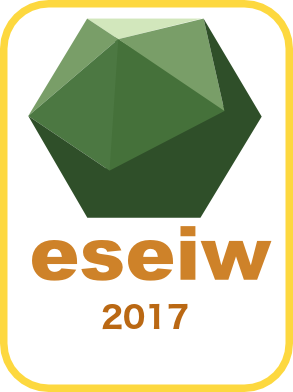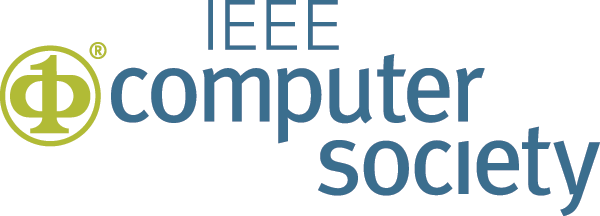ESEM 2017
Call for papers
The ACM/IEEE International Symposium on Empirical Software Engineering and Measurement (ESEM) is the premier conference for presenting research results related to empirical software engineering. These include results on:
- empirical methods as well as the design and analysis of empirical studies, ranging from controlled experiments to case studies and from quantitative to qualitative studies;
- the strengths and weaknesses of software engineering technologies and methods from a strong empirical viewpoint, including quantitative, qualitative, and mixed studies; and
- the systematic use of data and measurement to understand, evaluate, and model software engineering phenomena.
ESEM provides a stimulating forum where researchers and practitioners can present and discuss recent research results on a wide range of topics, in addition to exchanging ideas, experiences and challenging problems. The 11th edition of ESEM 2017 conference will be held in Toronto, Canada from November 9th to 10th, 2017 (http://www.ryerson.ca/dsl/eseiw2017)
The relevant topics include, but are not restricted to, the following:
- Empirical studies using qualitative, quantitative, and mixed methods
- Cross- and multi-disciplinary methods and studies
- Experiments and quasi-experiments
- Case studies, action research, and field studies
- Survey research
- Systematic literature reviews that include a strong synthesis part (not just mapping studies)
- Meta-analysis, qualitative and quantitative synthesis of studies
- Replication of empirical studies and families of studies
- Modelling, measuring, and assessing product and/or process quality
- Development and evaluation of empirical prediction systems or software estimation models
- Mining software engineering repositories
- Simulation-based studies in software engineering
- New ideas pertaining to empirical evaluation of software engineering technologies, methods, and tools, e.g., transferring and applying empirical methods from other disciplines to empirical software engineering
- Empirically-based decision making
- Evaluation and comparison of techniques and models
- Assessing the benefits/costs associated with using certain development technologies
- Industrial experience, software project experience, and knowledge management
- Software technology transfer to industry
- Infrastructures and novel techniques/tools for supporting any phase of empirical studies
The symposium encourages the submission of both novel work and replication studies. We explicitly encourage the submission of empirical studies with negative results (i.e., studies that did not deliver the expected results).
For all papers, a structured abstract is required with the headings: Background, Aims, Method, Results, and Conclusions. Papers should contain an explicit description of the empirical strategy they use or address. Submissions will be peer reviewed by at least three experts from the international program committee.
All submissions must be written in English. Any papers that exceed the maximum number of pages given for the respective category, or are outside the scope of the symposium, or do not follow the formatting guidelines will be rejected without review.
All papers must be submitted through https://easychair.org/conferences/?conf=esem2017 in PDF format. Please select the appropriate track (see below) for your submission.
Accepted contributions must have a minimum of one author registration by the time of the deadline for the camera-ready submission for the respective paper type. Each accepted paper needs to have one registration at the full conference rate.
Full paper submission
Papers should describe original, unpublished work, which is not under parallel submission elsewhere.
Papers are limited to 10 pages, must be written in English, and must be formatted in PDF format according to the IEEE manuscript template for conference proceedings:
IEEE manuscript templates for conference proceedings
Any papers that exceed 10 pages, or are outside the scope of the symposium, or do not follow the formatting guidelines will be rejected without review. Full papers must be submitted through the Web-based submission system (please select track "Full Papers").
Short paper submissions
The goal of short papers is to promote current work on research and practice.
Short papers represent an early communication of research and do not always require complete evaluation of results as in the case of a full paper.
In this way, authors can introduce new ideas to the community, discuss ideas and get early feedback. Please note that short papers are NOT intended to be position statements.
Short papers must be written in English and submitted through the Web-based submission system (please select track "Short Papers"), using PDF format.
Short papers must not exceed 6 pages and must be formatted according to the IEEE manuscript template for conference proceedings:
IEEE manuscript templates for conference proceedings
Industrial paper submission
ESEM 2017 will also feature an Industry Track.The ESEM Industry track is one of the major forums to disseminate results (positive or negative) concerning the experience of applying/evaluating software engineering technologies (methods, techniques and tools) in real industrial settings.
The track provides researchers with industrial collaborations and industry contributors with an opportunity to publish empirical studies conducted in industry (e.g., action research, case studies) or experience reports that may help understanding situations in which technologies really work and their impact.
Submissions should include information on the industrial setting, provide motivation, explain the events leading to the outcomes, including the challenges faced, summarize the outcomes, and conclude with lessons learned, take-away messages, and advice based on the described experience.
An extensive description of related work or background material is not required. At least one contributing author must be from industry.
Papers may be between 6 and 10 pages in length and must be formatted according to the IEEE manuscript template for conference proceedings:
IEEE manuscript templates for conference proceedings
Poster submission
The ESEM Poster Sessions provide an excellent forum for authors to present their work in an informal and interactive setting. Posters are ideal for presenting speculative, late-breaking results, or for presenting new and innovative work. Poster Sessions separate themselves from the Short Paper Sessions by allowing authors the ability to get immediate, personal feedback from conference attendees during the break sessions as they present their work.
Posters also provide conference attendees an opportunity to see emerging work in the field.
Successful posters are carefully designed to convey technical details. They should also attract the attention of attendees as they stroll past the displays.
The goal is to develop a poster that encourages and facilitates small groups of individuals interested in a technical area to gather and interact. Posters that present work in progress and draw important conclusions from practical experience are especially welcome.
Posters must be submitted through the Web-based submission system (please select track "Posters"), using PDF format. Poster proposals must not exceed 2 pages and must be formatted according to the IEEE manuscript template for conference proceedings:
IEEE manuscript templates for conference proceedings






